Publications
Articles, publications, books, tools and multimedia features from the U.S. Institute of Peace provide the latest news, analysis, research findings, practitioner guides and reports, all related to the conflict zones and issues that are at the center of the Institute’s work to prevent and reduce violent conflict.
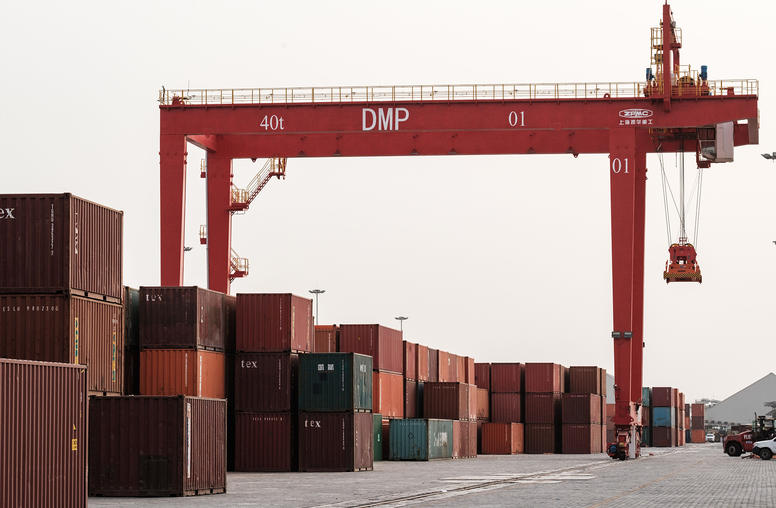
China’s Impact on Conflict Dynamics in the Red Sea Arena
This report focuses on China’s influence and activities in the region and its relationships with twelve Red Sea arena states: Djibouti, Egypt, Eritrea, Ethiopia, Oman, Qatar, Saudi Arabia, Somalia, South Sudan, Sudan, the United Arab Emirates (UAE), and Yemen.

Jonathan Pinckney on Social Movements and Coronavirus
Coronavirus has led to a 70 percent decline in public protests worldwide compared to last year—but this doesn’t mean social movements are going away. “There are literally hundreds of other tactics … to express dissent while still following social distancing guidelines,” says USIP’s Jonathan Pinckney.
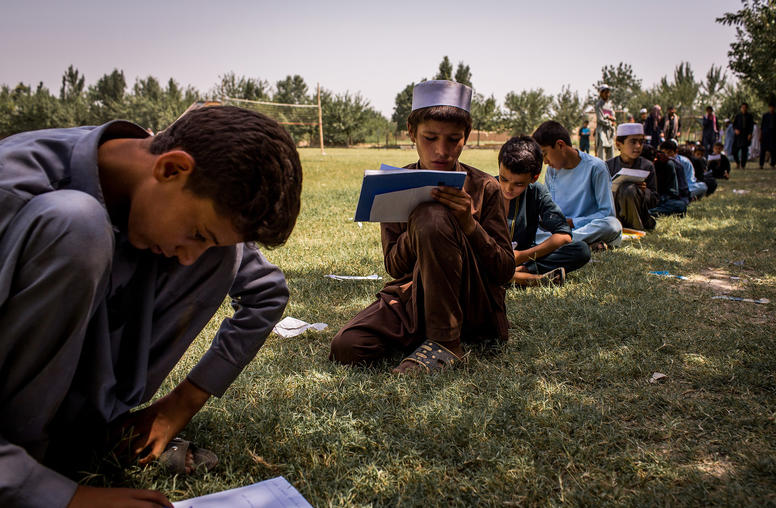
Service Delivery in Taliban-Influenced Areas of Afghanistan
In 2018 and 2019, USIP partnered with the Afghanistan Analysts Network (AAN), a Kabul-based research and policy organization, in an effort to understand how the Taliban provide education, health, and other services to people who live in areas where they are the dominant power. Based on a series of studies conducted by AAN in five districts across the country, the report also examines the Taliban's motivations as a governing entity and their implications for a potential peace settlement.

Tyler Beckelman on Cooperation to Combat Coronavirus
A “mixed” response from the international community is threatening a worst-case scenario for fragile states facing COVID-19. USIP’s Tyler Beckelman says countries need to recognize “the best strategy for defeating the virus is defeating it everywhere” and cooperate on aid in fragile contexts.
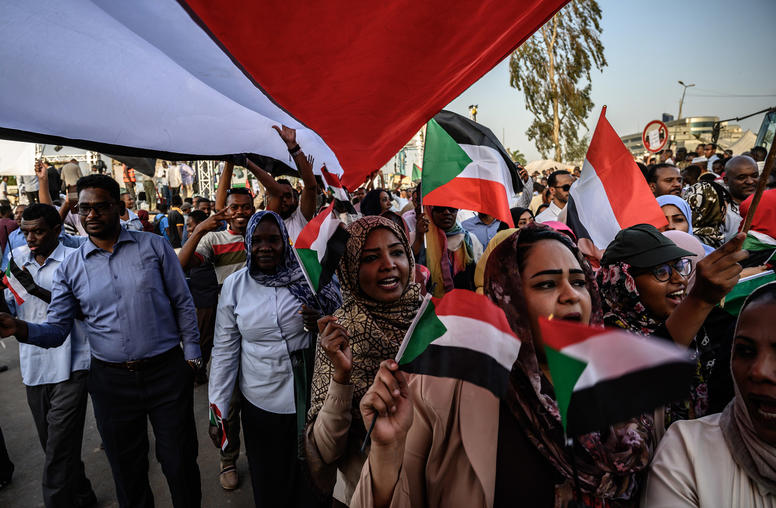
China’s Response to Sudan’s Political Transition
Sudan's decades-long economic relationship with China has almost always been dominated by oil. Yet this relationship has changed significantly in the past decade—first with the loss of oil reserves when South Sudan became an independent nation in 2011, and more recently due to the ouster of longtime ally President Omar al-Bashir. This report, based on interviews with policy officials, diplomats, industry and security experts, and others, examines China’s evolving commercial and political interests in this vital nation in the Horn of Africa.

Patricia Kim on China and Coronavirus in the Red Sea Arena
With coronavirus spreading in the Red Sea region, USIP’s Patricia Kim says Red Sea states don’t want to be forced to choose between major powers. “When things like the COVID-19 pandemic peak in fragile places,” says Kim, “this definitely requires cooperation between the United States and China.”
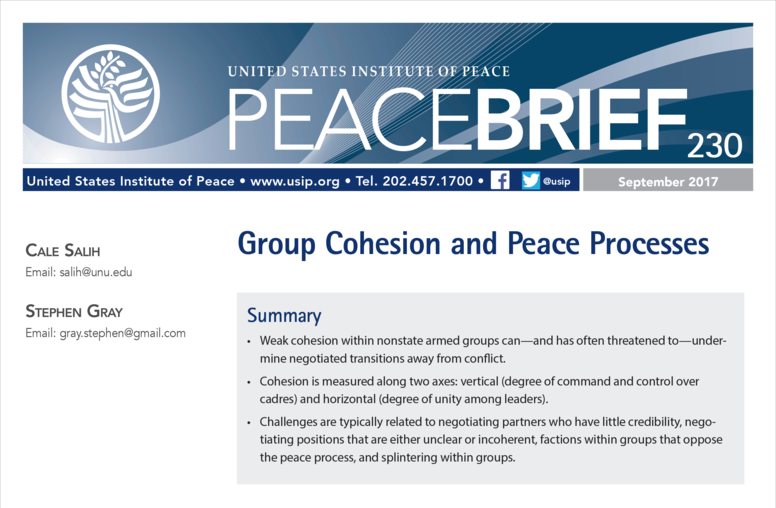
Group Cohesion and Peace Processes
Drawing on a wide range of cases, including Burma, Colombia, Senegal, and Uganda, this Peace Brief discusses the internal cohesion of nonstate armed groups, explains how weak cohesion can undermine a peace process, and offers various strategies that those supporting peace processes can deploy to mitigate such risks.
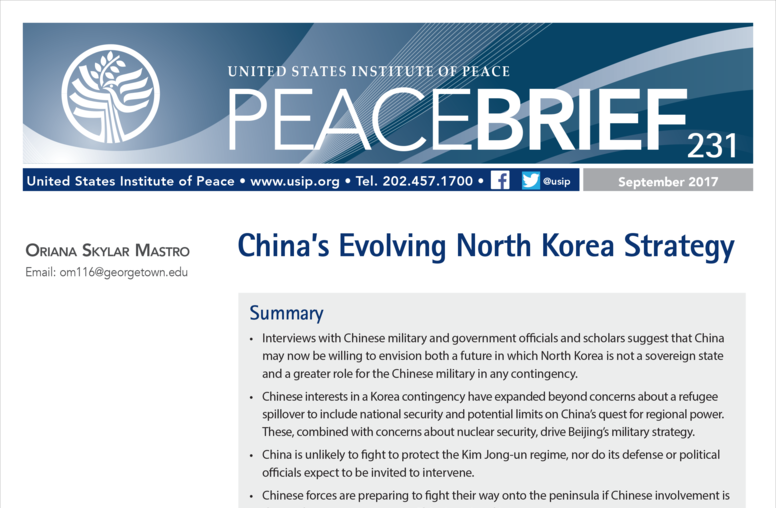
China’s Evolving North Korea Strategy
Despite Pyongyang’s recent ballistic missile and nuclear activity and threats, Beijing continues to resist US requests to apply greater economic pressure on North Korea. This measured response aside, nuanced but highly significant changes in China’s thinking on North Korea are clear. China may now be willing to envision both a future in which North Korea is not a sovereign state and a greater role for the Chinese military in any contingency. This Peace Brief reviews this thinking as well as potential Chinese motivations to intervene militarily in a Korea contingency and the implications for US policy.
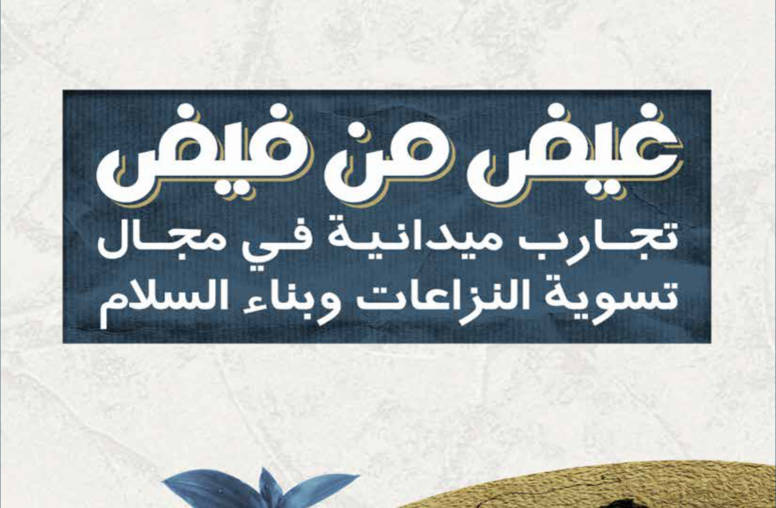
Conflict Resolution and Peacebuilding in the MENA Region: Field Tested Experiences (Arabic)
The resource book falls within the overall objectives of the regional facilitators 'funded and funded facilitators' project in a four-year partnership between the United States Institute of Peace and the Office of Democracy, Human Rights and Labor of the US State Department.
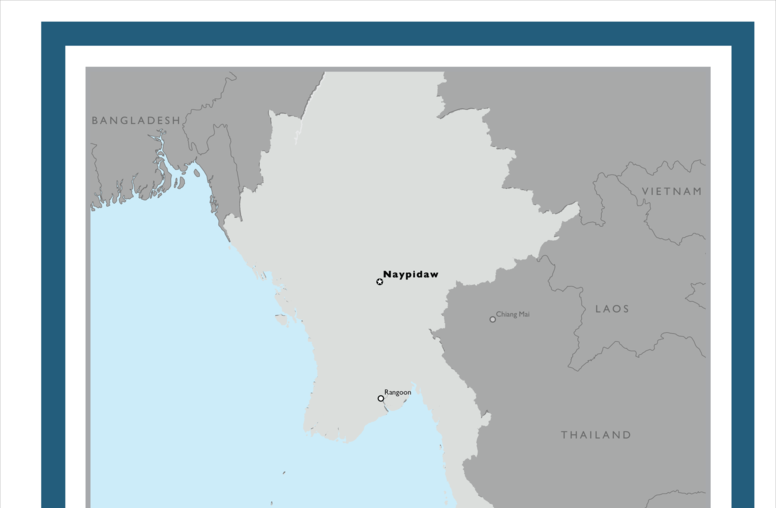
From Pariah to Partner: The US Integrated Reform Mission in Burma
This series of case studies—Burma (2009-2015), Jordan (2011-2016), and the Lake Chad Region (2013-2016)—document efforts and draw lessons from where US government leaders believe deepening crises were staved off through collaborative inter-agency engagement. Part of USIP’s “3D Learning from Complex Crises” project, the cases provide programmatic and operational lessons from complex operating environments. These lessons support systemic integrated approaches to complex crises and will better equip individuals to share objectives when working in inter-agency environments.